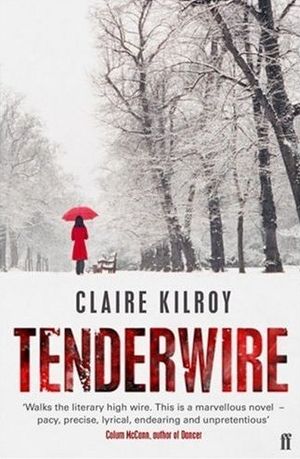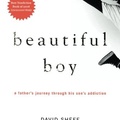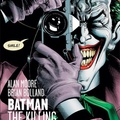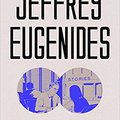Claire Kilroy: Tenderwire
 For me it’s always thrilling to read about someone with a passion for the sake of which he is willing to sacrifice everything. And it’s even more thrilling if the person doesn’t know in advance what that object is which will move him so much that he happily destroys his regular life for its sake – and therefore his obsession comes as a surprise even to himself.
For me it’s always thrilling to read about someone with a passion for the sake of which he is willing to sacrifice everything. And it’s even more thrilling if the person doesn’t know in advance what that object is which will move him so much that he happily destroys his regular life for its sake – and therefore his obsession comes as a surprise even to himself.
The protagonist of Tenderwire, the violinist Eva Tyne is such a character. At the beginning of the story Eva’s music career is just about kicking off: she meets great success with her debut performance as a solo violinist and it can be assumed that all the great concert halls of the world will soon welcome her warmly. Eva is a talented and hardworking musician, and even though she lives a rather messy life, she doesn’t seem to be overtly passionate or someone prone to obsessive behavior. But then things take a turn for the worse: Eva ends up in the hospital due to an unexplained, sudden illness; then upon her leave from the hospital she spends the night with an attractive stranger, Daniel, which leads to her breaking up with her boyfriend. Not long after this, she meets Alexander, a suspicious-looking, rather aggressive guy who offers a (supposedly) Stradivari violin for her to buy. Eva lays aside all her suspicions and fears, visits Alexander and has a go with the violin – and she becomes its slave at the very first minute. She has some common sense, though, so she runs through a series of questions in her mind (how come that this guy has an original Stradivari? what if it was stolen? can it really be original? how will I get money enough to buy it?), but then she sweeps away all her questions and doubts and decides to get the violin, no matter what it takes – but the situation only becomes really tricky after she makes the purchase.
Claire Kilroy works with several stock characters and situations, and she casually places highly annoying red herrings all over the story. As regards the stock characters, you may think of Alexander, your typical dangerous-looking Russian (or Chechnyan?) immigrant who deals in shady business; or you can think of Eva’s ex-boyfriend, tender and sensitive Kryštof; or of Daniel, the maddeningly good-looking, exotic prototype of the Latin lover who seems to have nothing in his head besides a good deal of narcissism. None of them is an interesting character, they are no more than embodiments of certain prototypes. And as regards the situations of the novel, well, I wasn’t exactly overcome with the sense of „I’ve never seen anything like this before” when it turned out that Eva became an artist mainly because of her unhappy past (which included the disappearance of her father and her tense relations with her mother).
All these clichés could well make this novel thoroughly irritating, but as it happens, they do not ruin the book. Because there are two elements in Tenderwire which are anything but cliché-like and ordinary: Eva and the violin itself. Claire Kilroy depicts the connection between Eva and the instrument, Eva’s growing, mad love for her violin, and the way the girl and the instrument virtually become one inseparable entity in such a beautiful, amazing and often creepy fashion that it compensated for the facts that the minor characters were no more than hollow shells and that several, seemingly important sub-plots led to nowhere.
As for Eva, she’s a hugely unreliable narrator with a wry, cynical sense of humour. She often hides important plot details or diverts our attention away from the most revealing details, with the consequence that the real significance of certain events only becomes clear much later, and this makes the novel almost unputdownable. Moreover, Eva’s unreliable story-telling method also signifies her attachment to her violin: she’s always afraid that someone will try to tear her apart from the violin, and by not letting the reader know everything about the instrument, in a way she keeps it safe to herself.
And the violin itself stands at the center of the story like some enigmatic, magical object: an object which cannot be truly understood and which means something else for everyone who comes in contact with it: for Daniel, who invests money in it so that Eva can buy it, it simply means good business; for a minor character who builds violins and fixes broken ones, it’s a valuable masterpiece; for its allegedly „real” owners, it means a piece of their family history and their rightful inheritance. For Eva, the violin is all this at once – and much more, too: an object, a passion which truly takes possession of her soul just as she tries to take possession of the violin itself. And reaching the end of the story, you can make up your mind as to who owns the other more, and whether it was worth Eva’s while to give up everything for the sake of the magic violin.





